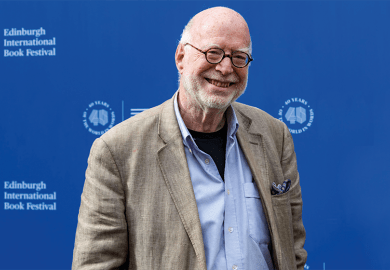There is a national debate - some have said a crisis - concerning the importance and benefit to society of research in the humanities. Since there appears to be no such lack of confidence in other countries, it may be that the problem in the UK is one of the need to make a case: to showcase and publicise the humanities to other scholars, to governments and to the public.
It is not coincidental that alone of the major Western nations, the UK does not have a flagship centre or institute for advanced studies in the arts and humanities. The US has many, from the largest and most famous - the Princeton Institute - to smaller centres such as those at the Research Triangle or Stanford University. Canada has the Peter Wall Institute for Advanced Studies at the University of British Columbia; in Australia, the Humanities Research Centre was modelled on Princeton. Our European neighbours have also pursued such initiatives. France has the School of Advanced Social Science Studies (EHESS), Germany the Wissenschaftskolleg zu Berlin, the Netherlands the Netherlands Institute for Advanced Study, and recently Spain launched a new Centre for Humanities and Social Sciences at Madrid. The case for an English IAS is compelling if we are not to lose our research standing.
The first argument is a political one. It is often lamented that humanities research is not visible and seldom gets the publicity that greets scientific discoveries. But some of our most well-known TV scholars are humanists - historians and critics - and there is clearly a public appetite to learn of major new discoveries about, say, Shakespeare, the Tudors or the Third Reich. What an IAS does is provide a locus for, and give a focus on, the work of distinguished scholars by bringing them together in a place (a building) while they pursue often ground-breaking research.
The current fashions are for interdisciplinary approaches and collaborative research. Some academics applaud this; others favour individual scholarship, which will always remain vital to most work in the humanities. An IAS enables and facilitates both. It permits individual scholars to work on their own projects but places all research and thinking in a rich interdisciplinary and critical community. An IAS eases the tensions between the interdisciplinary and discipline-bound project, between the scholar who prefers to work alone and the group project. Importantly, all fellows who leave an IAS take its conversations back to their own scholarship, universities and students in ways that are nationally - and internationally - enriching.
A UK IAS should be a prominent national body that, as well as having a small permanent faculty and visiting fellows, organises conferences and public debates, and perhaps hosts other research initiatives and activities. It should address the academic communities not only of the universities but of the great research libraries, galleries and museums, facilitating conversation and co-operation among scholars and across institutions that too often work in isolation. Although devoted to the humanities, it should be open to applicants who are situated in other disciplines but whose subject or methodology impacts on - or challenges - humanistic studies.
What is vital is size, and thinking big from the beginning. In Britain too many half-starts or near-invisible centres have failed because they have lacked a building, or adequate funding, or a critical mass of resident scholars, visiting fellows and support staff. A community of, say, 50 enables a real critical conversation (over lunches and coffees as well as at formal seminars) and provides a base for various events that may draw in larger numbers of participants.
Thinking big may seem to present a major financial challenge, but in fact it may facilitate getting something like this off the ground. It should not be impossible to attract a donor, such as Microsoft or Google, especially in light of the latter's books digitisation project. Once an IAS is established, funding for development and growth should not present major problems, as a prestigious institute should attract donors ready to endow fellowships, space, distinguished lectures and so on. Public profile brings its rewards, just as its absence has cost the humanities over the years.
Location will be contentious, but Cambridge, London or Oxford would be best. Wherever it is, the IAS should be independent of any university or the daily life of teaching and administration.
The current climate is one in which not establishing an institute for advanced studies in the UK will result in the humanities losing reputation, visibility and the competition for research funding. Without a flagship, the whole fleet may be vulnerable.
Kevin Sharpe is professor of Renaissance studies, School of English and Drama, Queen Mary, University of London.
Register to continue
Why register?
- Registration is free and only takes a moment
- Once registered, you can read 3 articles a month
- Sign up for our newsletter
Subscribe
Or subscribe for unlimited access to:
- Unlimited access to news, views, insights & reviews
- Digital editions
- Digital access to THE’s university and college rankings analysis
Already registered or a current subscriber? Login



